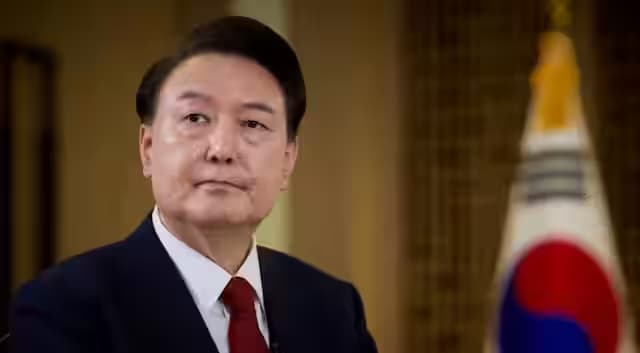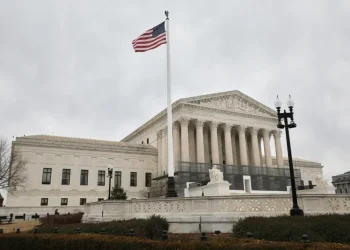South Korea’s President Yoon Faces Travel Ban Amid Martial Law Controversy
SEOUL, South Korea (AP) — South Korea’s Justice Ministry has imposed an overseas travel ban on President Yoon Suk Yeol, escalating tensions following his controversial declaration of martial law last week. The ban comes as authorities investigate allegations of rebellion and other charges tied to Yoon’s short-lived imposition of military rule.
Martial Law Sparks Political Turmoil
On December 3, Yoon declared martial law, deploying special forces onto the streets of Seoul. The move plunged the nation into political chaos, drawing sharp criticism domestically and abroad. Although Yoon narrowly avoided an impeachment vote on Saturday due to a boycott by his ruling People Power Party (PPP), opposition lawmakers vowed to introduce a new impeachment motion this week.
Justice Ministry official Bae Sang-up confirmed the travel ban during a parliamentary hearing, citing requests from police, prosecutors, and anti-corruption agencies investigating Yoon’s actions. A senior police official indicated that Yoon could be detained under certain conditions, though any attempt to arrest the sitting president would likely face significant resistance from his security team.
Presidential Immunity Tested
While South Korean presidents are generally immune from prosecution during their term, allegations of rebellion or treason are exceptions. Legal experts suggest that Yoon could be questioned and even detained, but logistical challenges, including legal protections for presidential offices, make this scenario unlikely.
This echoes the case of former President Park Geun-hye, who was impeached in 2017 over corruption charges. During her investigation, prosecutors were unable to search her office, ultimately receiving documents outside the presidential compound.
Opposition Decries “Coup Attempt”
The main opposition Democratic Party has labeled Yoon’s martial law decree an “unconstitutional, illegal rebellion or coup.” The party has filed criminal complaints against Yoon, his former defense minister, and several top military officials.
Authorities have already detained former Defense Minister Kim Yong Hyun, accused of advising Yoon to declare martial law. Additionally, three senior military commanders have been suspended for their alleged involvement in the decree.
Yoon Apologizes Amid Backlash
On Saturday, Yoon issued a public apology, accepting legal and political responsibility for the decree. He pledged to let his party navigate the political fallout, including discussions about his future in office.
The martial law declaration lasted just six hours before being overturned by the National Assembly, where some members of Yoon’s own party joined opposition lawmakers in rejecting the measure. Despite this, the PPP later opposed impeachment efforts, fearing political fallout similar to 2017 when Park’s ousting led to a liberal presidential victory.
Ruling Party in Damage Control
PPP leader Han Dong-hun signaled plans for Yoon’s early resignation, emphasizing a “minimized social disruption” approach. However, Han’s remarks about sidelining Yoon from state affairs, including foreign policy, have drawn criticism for potentially violating constitutional norms.
Critics argue that the PPP is stalling to rebuild public trust, as protests calling for Yoon’s impeachment continue to grow. The Defense Ministry clarified on Monday that Yoon remains in control of the military, a constitutional authority reserved for the president.
Future Uncertain
Since assuming office in 2022, Yoon has been locked in fierce political battles with a liberal-dominated parliament. His presidency has been marred by scandals, public discontent, and accusations of authoritarianism, leaving his political future in jeopardy.
As investigations unfold, Yoon’s presidency faces increasing pressure domestically and internationally, with both supporters and critics awaiting the next chapter in South Korea’s unfolding political drama.
This article was rewritten by JournosNews.com based on verified reporting from trusted sources. The content has been independently reviewed, fact-checked, and edited for accuracy, neutrality, tone, and global readability in accordance with Google News and AdSense standards.
All opinions, quotes, or statements from contributors, experts, or sourced organizations do not necessarily reflect the views of JournosNews.com. JournosNews.com maintains full editorial independence from any external funders, sponsors, or organizations.
Stay informed with JournosNews.com — your trusted source for verified global reporting and in-depth analysis. Follow us on Google News, BlueSky, and X for real-time updates.














